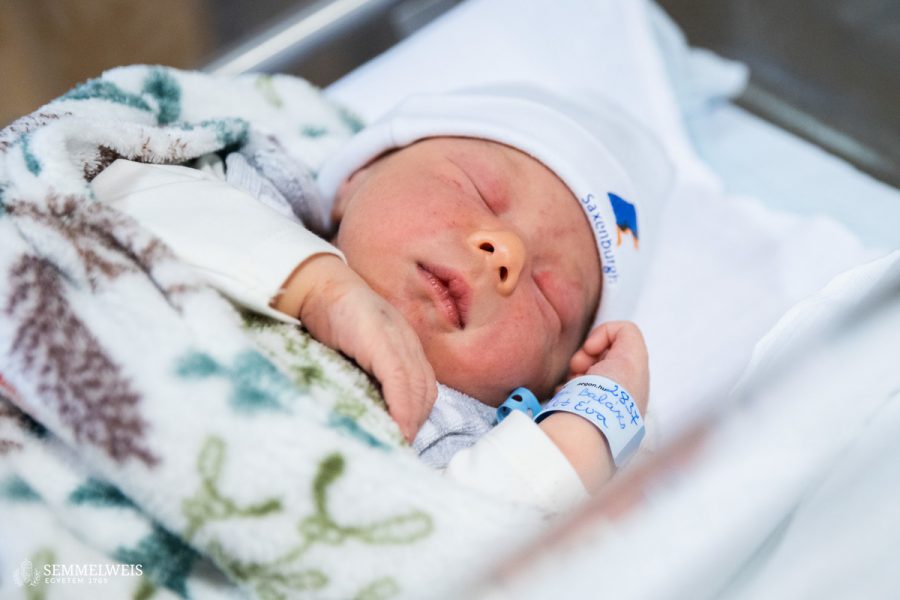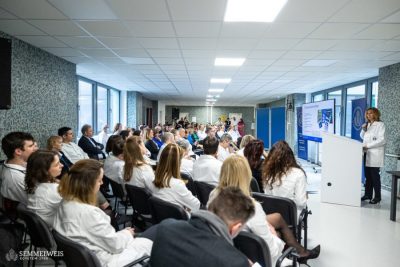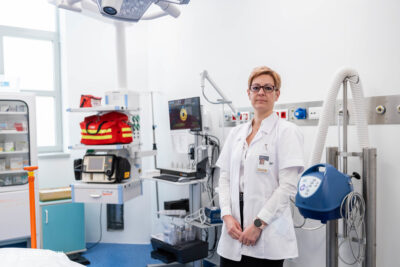It is an extreme case that a transplant recipient can give birth to a child, as any complications that may arise from the transplant could endanger the life of both the mother and the unborn child,” said Dr. Anikó Bohács, the mother’s post-transplant doctor. The associate professor at the Department of Pulmonology of Semmelweis University pointed out that this is the first case in Hungary where a heart or lung transplant patient has given birth to a child – but this is not uncommon in the world either. The risk of rejection of the transplanted organ is high.
The expert explained that there are a number of preliminary and intermediate conditions that must be met in order to have children. National and international recommendations require a stable functioning of the transplanted organ, so at least 3 years must pass after the transplantation. During pregnancy, immunosuppressive (anti-rejection) medication must be stopped and the lungs must remain stable after this intervention. Medication levels are constantly monitored, as the body’s protein metabolism changes during pregnancy and anaemia may develop. There is also a risk of increased susceptibility to infection during pregnancy, and if the mother is treated with antibiotics to protect herself, this can have a detrimental effect on the foetus.
Among the risks, the expert said that if the transplant is due to a genetically inherited disease, such as cystic fibrosis, the couple should undergo genetic counselling and testing before having a child, because this type of disease can be inherited by the child. It is also very important that the mother does not have a pathogen that is insensitive to several antibiotics. There is also a risk of cytomegalovirus (CMV) in transplant recipients, which is constantly monitored because it can reactivate during pregnancy and cause fetal illness. All in all, from a medical point of view, only a very planned pregnancy can be undertaken at this time,” stressed Dr. Anikó Bohács.
The associate professor said that the woman, born in 1992, cooperated very well with her doctors, who spent more than half a year preparing her, thinking about possible complications before the pregnancy. Her complication-free delivery was greatly helped by the fact that she had no co-morbidities, no antibodies to the transplanted organ, and no pathogens or rejection.
The transplanted mother and her partner visited the Assisted Reproduction Centre (ARC) of the Department of Obstetrics and Gynaecology of Semmelweis University in June 2021. After a full examination and careful interdisciplinary consultation, stimulation, egg retrieval, fertilisation and embryo culture were performed in October 2021, said Dr. Miklós Sipos. The ARC director explained that after making sure that the reproductive treatment had no adverse effects and that the prospective mother’s body was in a receptive state, a single blastocyst germ, frozen at day 5, was thawed and implanted under ultrasound guidance in April 2022. The embryo implanted in an optimal location and led to a successful live birth. The clinical chief physician emphasized that the current conception and birth illustrate that even in such special cases, assisted reproductive treatment can be performed safely and successfully after careful examination and preparation.
The Caesarean delivery was conducted by Dr. Ferenc Bánhidy, Vice-Rector, Deputy Director of the Department of Obstetrics and Gynaecology. The 3140-grams mature newborn baby boy was named Balázs. He and his mother were allowed to leave the clinic.
Róbert Tasnádi / Bernadett Bódi
Translation: Gábor Kiss
Photo by Bálint Barta – Semmelweis University



